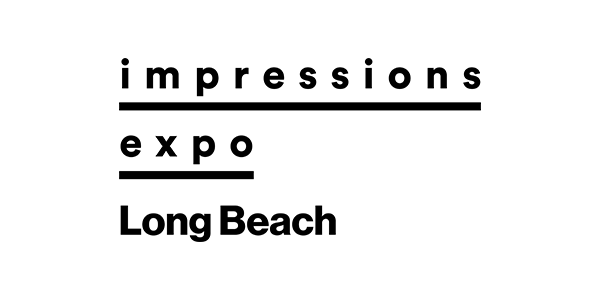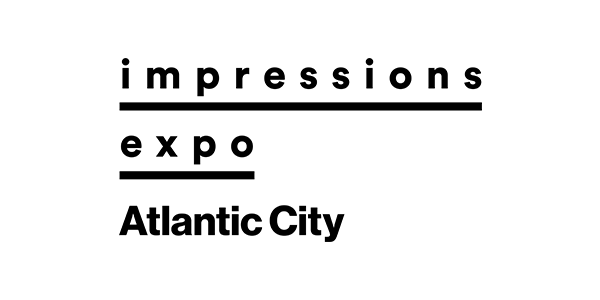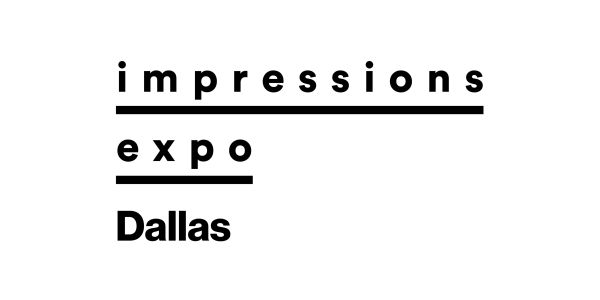Dawaud Muhammad already had built a name for himself in the urban clothing game before the apparel world would formally be introduced to San Leandro, California-based Big Printing T-Shirt Co. His T-shirt designs had ruled the streets of Oakland, California, in the early 1990s thanks to his Big Pimpin Turf Clothes line. In those early years, the 19-year-old was creating designs everyone wanted to wear.
As the story goes, one day — while dropping off an order at a local mall — a young woman named Kesney caught his eye. They dated, fell in love and married, but in the midst of their courting, he had an opportunity to bid on a project at a local junior high school where Kesney’s mother was the activities director.
By entering the lowest bid, the story of Dawaud and Kesney Muhammad — as entrepreneurs — began. In 1999, they bought a screen-printing press from a friend and opened a shop in his grandmother’s garage. The Big Printing brand had officially entered the screen-printing business.
“I had a mentor tell me that once you start printing for other people, you’ll never go back to printing your own line again,” Dawaud Muhammad recalls. “When you are doing your own thing, you have to design, print, market and sell what you make. When you do it for someone else, you print the job and get paid up front.”
This “boy-meets-girl-meets-entrepreneurial-opportunity” story is powered not only by Dawaud Muhammad’s creative genius, but also by the business savvy of Kesney Muhammad, a Howard University graduate who worked in Silicon Valley. With him serving up the creative and her taking on a more business-focused marketing role, the couple built the Big Printing brand by working with local churches, motorcycle clubs and startup streetwear brands.
The Muhammads not only continued to hone their craft, but they also dove deeper into the garment business. Attending industry trade shows and picking the brains of industry veterans, they methodically mastered the dynamics of playing on a larger field.
“A lot of inspiration came from attending shows like MAGIC in Vegas, and the men’s apparel and garment shows in California every year,” Kesney Muhammad says. “We sat down and did a lot of brainstorming. One of the beautiful things about the garment-decoration industry is that we provide a service to everybody across the board. A person has a concept or idea, whether it is a Fortune 500 company or a small company who just needs T-shirts that have to be decorated with a logo or some fashion that separates it from another. So we initially went in and got our feet wet doing bigger and bigger projects.”
In time, Big Printing became a well-known player in the urban streetwear scene, creating looks for the likes of Philthy Rich’s FOD line; Beeda Weeda’s Mackin’ & Mobbin’ line; Mistah F.A.B.’s Dope Era line; the BeastMode line by beloved Oakland native and former NFL star Marshawn Lynch; and many more, including teams, schools and artists around the country.
The Opportunity of a Lifetime
It was a huge mistake. In the throes of a worldwide pandemic that disrupted the way everyone did everything — and at the apex of national protests surrounding George Floyd’s murder in Minneapolis — a Fortune 500 company made a politically incorrect statement so insensitive that backlash was fierce. Trying to make amends for its misconduct, the company, which shall remain nameless, needed to calm the waters of discontent.
The plan was to order 300,000 Black Lives Matter-inspired shirts for company employees from a Black-owned printing company. But the order was as ominous for the print shop taking the job as it was socially important for the company placing it. We’re talking about a large volume of shirts with a 14-day turnaround period — in the middle of a time period during which many apparel decorators had closed their doors.
“There were only two choices,” Kesney Muhammad recalls. “[We could] take the job or not take the job. At the time, the country was in the middle of COVID and there was so much social unrest. The job was a little bit controversial. We initially said, ‘No, no, no, we just can’t.’ We were in the process of making some of these kinds of shirts ourselves. Would our customers think we were sellouts? It could ruin our reputation. Everything was just off the hook.”
On the other hand, the job really was an opportunity of a lifetime. Completing it — absurd deadline and all — could help launch Big Printing into another economic stratosphere. The opportunity also would be a step in the right direction for economic inclusion. After all, a job of this magnitude from a Fortune 500 player, which would elicit the help of other minority-owned businesses, could represent a huge opportunity for all involved.
“We would have our foot in the door and be ready for what was next,” Kesney Muhammad says.
Because of the tight turnaround for such a large order, all sides settled on a 100,000-shirt order with 300,000 impressions. Big Printing’s other orders would be subcontracted to other minority printers, including Blue Chip Tees, Krucial Printing, Awesome Screen Printing and Star Printing Co., all based in California.
‘Power of the P.O.’
At the real heart of this story is the help Big Printing received from the industry relationships the Muhammads have built. The initial lead for the Fortune 500 job came from Ted Pidcock, owner of Needham, Massachusetts-based screen-printing and embroidery shop Chillybears, who the Muhammads met in February 2020. Pidcock contacted them after a colleague, Adam Cohen of Fort Lauderdale, Florida-based Atlas Embroidery & Screen Printing, inquired about minority printers that could handle the job.
“It is the ‘Power of the P.O.,’” Dawaud Muhammad says. “That is what the lesson from all of this is. One job. That one order helped take us to a completely different level. And more than that, how one job could affect so much change. It begs the questions, ‘How diverse is your supply chain?’ ‘Are you working with Black-owned companies and minority-owned companies?’ We wanted to show the effects of what happens when you do.”
The job enabled Big Printing to increase its staff by 25% and doubled the company’s size. Today, it operates from a 12,000-square-foot building that houses four automatics (two ROQ presses, one M&R eight-color press and an ASPE Rapid Tagger); a Brother GTX direct-to-garment (DTG) printer; a Brother GT-381 DTG printer; and 32 embroidery heads (24 Barudan heads and eight Tajima embroidery heads). In any given month, it prints more than 100 clothing lines.
“One order,” Dawaud Muhammad says. “One opportunity that was a back-and-forth between us, until we decided it was the right thing to do.”
Michael J. Pallerino is an award-winning writer who has written for a number of national consumer and trade publications. For more information or to comment on this article, email Michael at [email protected].





